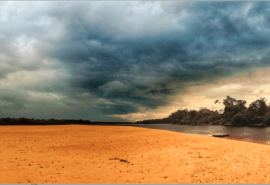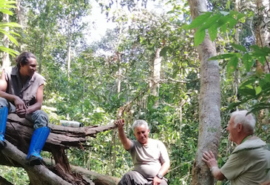The Crucial Role of Sustainable Travel in Preserving the Amazon Rainforest

The Amazon Rainforest, often referred to as the “heart of the Earth,” is a vital ecosystem that plays a critical role in maintaining global climate stability and supporting a vast array of biodiversity. However, this invaluable natural treasure is facing unprecedented threats due to deforestation, illegal logging and unsustainable practices. In this context, sustainable travel emerges as a powerful tool not only for experiencing the Amazon’s beauty but also for actively participating in its conservation.
Understanding Sustainable Travel
Sustainable travel, also known as eco-tourism or responsible tourism, is a concept that centers around minimizing the negative impacts of tourism on the environment, local communities, and cultures, while maximizing the positive benefits. It emphasizes maintaining the ecological balance of a destination and contributing to the well-being of local inhabitants.
The Amazon’s Fragile Ecosystem
The Amazon Rainforest covers approximately 5.5 million square kilometers across South America, encompassing nine countries. It harbors an astonishing variety of plant and animal species, many of which are found nowhere else on Earth. The forest also acts as a carbon sink, absorbing massive amounts of carbon dioxide and releasing oxygen, thereby regulating the global climate.
Threats to the Amazon Rainforest
Deforestation in the Amazon is a result of activities such as logging, agriculture, and mining, driven by demand for resources from both local communities and international markets. This unchecked exploitation poses a severe threat to the Amazon’s delicate equilibrium, leading to habitat loss, biodiversity decline, and increased greenhouse gas emissions.
The Role of Sustainable Travel
- Promoting Conservation Education: Sustainable travel offers a unique opportunity to educate visitors about the importance of the Amazon Rainforest and the consequences of its destruction. This firsthand experience can foster a sense of responsibility and commitment to preserving the environment.
- Supporting Local Economies: Responsible tourism generates income for local communities, providing them with alternatives to destructive practices like logging and mining. By financially supporting these communities, travelers can indirectly contribute to the protection of the rainforest. For example, community-based ecotourism at the Xixuaú Amazon Ecolodge is managed by the local cooperative, CoopXixuaú.
- Minimizing Environmental Impact: Sustainable travel practices prioritize minimizing negative impacts on the environment. This includes following guidelines for waste disposal, energy consumption, and wildlife interaction, thereby reducing the ecological footprint of tourism activities.
- Fostering Conservation Initiatives: Many eco-tourism operators collaborate with local organizations to fund conservation projects, reforestation efforts, and wildlife rehabilitation centers. This creates a direct link between travelers’ contributions and tangible conservation outcomes.
Tips for Engaging in Sustainable Travel in the Amazon
- Choose Responsible Tour Operators: Opt for tour companies that prioritize environmental protection, work with local communities, and offer educational experiences.
- Respect Wildlife and Habitats: Adhere to guidelines for wildlife viewing and maintaining a safe distance to minimize stress on animals and their habitats.
- Conserve Resources: Use resources like water and electricity sparingly, and avoid excessive waste generation.
- Purchase Sustainably: Support local artisans and communities by purchasing souvenirs made from sustainable materials.
Sustainable travel has evolved from being a niche concept to a powerful instrument in the conservation of ecologically fragile regions like the Amazon Rainforest. By choosing to engage in responsible tourism, travelers can not only experience the awe-inspiring beauty of the Amazon but also become active participants in its preservation. The choices we make as travelers today have a lasting impact on the health and vitality of the Amazon Rainforest, ensuring its existence for generations to come.
Photo: Avalon Bauman
Related Posts
-
Like every year, it’s time for the water in the riv...Aug 20, 2019 / 0 comments
-
Emanuela Evangelista speaking of her commitment to environme...Mar 09, 2020 / 0 comments
-
Discover this amazing photo album shot in 2017 in the Xixua�...Feb 13, 2018 / 0 comments
-
Why not try a trip to the Amazon Forest? The most common ret...Oct 13, 2019 / 0 comments
Contact us
Xixuaú Amazon Ecolodge
69373-000 – RR, Brasil






Sorry, the comment form is closed at this time.